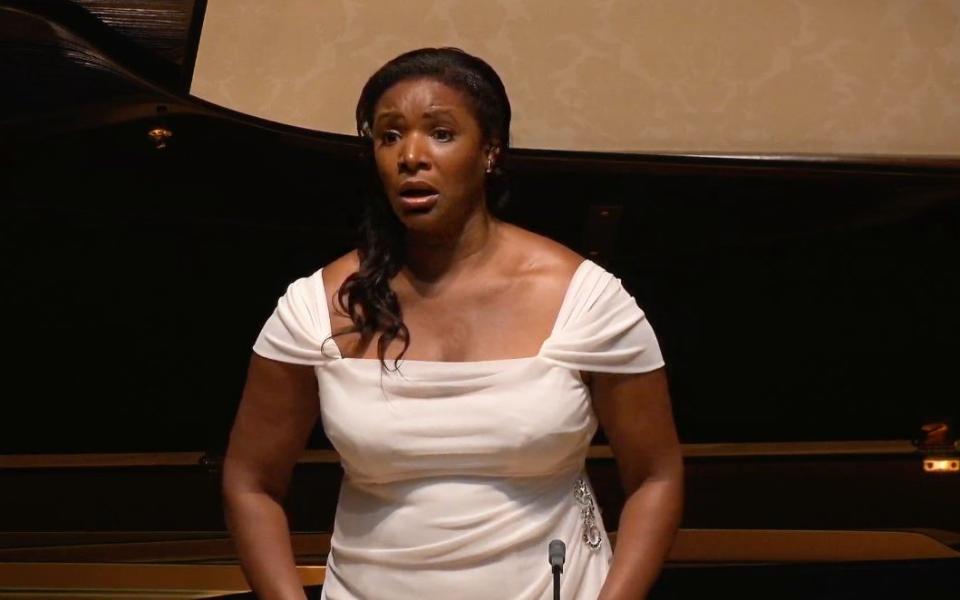Elizabeth Llewellyn, Wigmore Hall, review: gloriously full-blooded and warm-hearted singing

As a Black British soprano (of Jamaican descent) making her Wigmore Hall debut, Elizabeth Llewellyn appropriately chose as her programme’s centrepiece music by the Black British composer (of West African paternity) Samuel Coleridge-Taylor (1875-1912). A figure deserving of more than the condescension of a passing footnote, he trained at the Royal College of Music and was sponsored by Elgar and Stanford. Posterity may remember him best for his cantata Hiawatha’s Wedding Feast – within recent memory, a choral society standby – but he wrote much more than that, and his largely neglected oeuvre may well be worth exploring further.
Llewellyn exhumed Six Sorrow Songs, a cycle set to poems by Christina Rossetti dating from 1904. Dedicated to Coleridge-Taylor’s wife Jessie, they are written in a bold heart-on-sleeve idiom, palpitating with emotion and rather unvarying in mood: the influence of his mentors Elgar and Stanford is evident. The eerie elegy ‘O roses for the flush of youth’ and the gently waltzing ‘She sat and sang alway’ are the most striking numbers in the set.
Commendably singing entirely from memory and word perfect, Llewellyn gave them her all. Her voice must now be in its maturity; rich, steady, evenly produced throughout the range and capable of some lovely diminuendo, it filled the hall with thrilling ease. Perhaps too much ease ? If one has a criticism, it would be that the performance veered towards the operatic and made a sustained forte its norm: had she held back a little, she could have played more with text and colour.
Lieder by technically sophisticated German contemporaries framed Coleridge-Taylor, and perhaps the comparison did him no favours. A Strauss group was distinguished by a glittering account of ‘Ständchen”, sung with irresistible charm, but it was in Mahler’s Rückert songs that Llewellyn impressed most. Rising to the challenge posed by the music’s grandeur, she fully embraced the variety of emotions expressed. ‘Ich atmet’ einen linden Duft’ drew subtle tones out of her gorgeous lower register; ‘Um Mitternacht’ had austere hymnal grandeur; and ‘Ich bin der Welt abhanden gekommen’, threaded along an impeccable legato, came to a climax of rapturous stillness, holding us in hushed silence long after the final piano postlude had faded.
As an encore – and there was no doubt that we wanted more – Llewellyn returned to Coleridge-Taylor and his cheerfully whimsical ‘Big Lady Moon’. Praise to the pianist Simon Lepper should be registered as more than an after-thought: he played throughout with great sensitivity and verve.
Open to a limited on-site audience, the Wigmore Hall is being super-scrupulous about the regulations, but there were enough people in the auditorium to give this concert some atmosphere (pre-virus, I’ve been to recitals here which have been emptier). Having to wear your mask when seated at a doubly safe distance from any other human may be irritating, but it’s a small price to pay to be in the living presence of such gloriously full-blooded and warm-hearted singing as Elizabeth Llewellyn produced.
This concert can be watched in HD video via the Wigmore Hall's website until 24 October, www.wigmore-hall.org.uk

